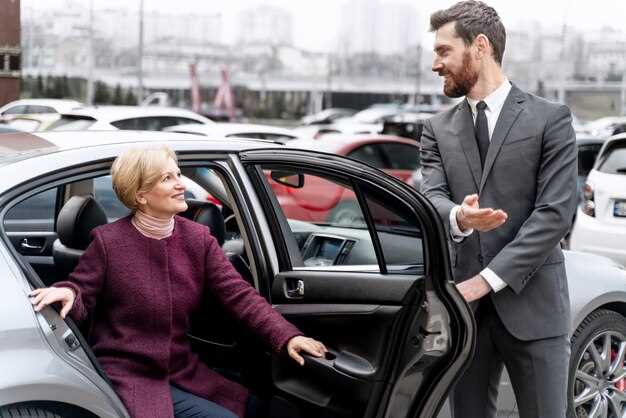Luxury vs economy vehicles – what are you paying for?


In the ever-evolving automotive landscape, the distinction between luxury and economy vehicles plays a pivotal role in shaping consumer choices. Luxury vehicles epitomize sophistication and superior craftsmanship, often accompanied by a hefty price tag. On the other hand, economy vehicles emphasize practicality, affordability, and value, attracting budget-conscious buyers seeking reliable transportation without extravagant expenditures.
The fundamental question arises: what drives your payment when selecting between these two contrasting categories? Factors such as brand prestige, performance, safety features, and cutting-edge technology contribute to the allure of luxury vehicles. Consumers attracted to premium models often find themselves willing to pay a premium for the experience, comfort, and status that these cars provide.
Conversely, economy vehicles present a different narrative. For many, purchasing decisions are closely tied to value–ensuring that every dollar spent translates into tangible benefits like fuel efficiency, maintenance costs, and resale value. Understanding how these elements intersect will help potential buyers navigate the intricate landscape of automotive options and make informed decisions that align with their financial goals and lifestyle preferences.
Luxury and Economy Vehicles: What Drives Your Payment
The decision to purchase a vehicle often hinges on the balance between value and affordability. Luxury and economy vehicles cater to different segments of the market, influencing buyer choices significantly. Understanding what drives payments in these categories can help consumers make informed decisions.
Luxury vehicles are typically associated with high-end brands, advanced technology, premium materials, and exceptional performance. The value of a luxury car goes beyond the physical attributes; it encompasses an experience that includes comfort, status, and brand prestige. Buyers are often willing to pay a premium for these factors, as they perceive a luxury vehicle as an investment in their lifestyle and image.
On the other hand, economy vehicles emphasize practicality and affordability. These cars are designed to meet essential transportation needs without unnecessary frills. The value of an economy vehicle lies in its low operating costs, fuel efficiency, and reliability. Consumers in this segment typically focus on functionality and overall ownership costs, leading to lower payment amounts compared to luxury models.
Financing options and payment structures also play a critical role in determining vehicle affordability. Luxury vehicles often come with higher interest rates and longer loan terms, impacting the total cost over time. Meanwhile, economy vehicles may offer more favorable financing conditions, making them more accessible to a wider range of buyers.
Ultimately, the decision between luxury and economy vehicles hinges on individual preferences, financial situations, and perceived value. Consumers should carefully evaluate their needs and budget to choose a vehicle that not only aligns with their lifestyle but also meets their financial goals.
Comparing Ownership Costs: Luxury vs. Economy Cars
When evaluating the overall ownership costs of luxury and economy vehicles, several essential factors come into play. A primary consideration is the initial purchase price, where luxury cars typically command a significantly higher value. This initial investment influences not only the price of the car but also subsequent expenses such as taxes and insurance premiums.
Insurance costs are often higher for luxury vehicles due to their increased value, resulting in elevated premiums. This is an essential factor to consider for potential buyers, as it adds to the total cost of ownership over time. Conversely, economy cars usually incur lower insurance expenses, benefiting those seeking to minimize ongoing costs.
Maintenance and repair costs also differ considerably between the two categories. Luxury cars, equipped with advanced technology and specialized parts, often require more expensive maintenance services. In contrast, economy vehicles tend to have more readily available parts and accessible service options, reducing potential expenditures on repairs.
Fuel economy is another critical aspect when comparing ownership costs. Economy cars are designed to be more fuel-efficient, which can lead to significant savings over time, particularly for those who drive frequently. Although some luxury models may offer hybrid or electric options that enhance fuel efficiency, most still consume more fuel than their economy counterparts, leading to higher fuel costs.
Depreciation rates also differ widely between luxury and economy vehicles. Luxury cars typically depreciate faster due to higher initial prices and greater market saturation of models. This rapid depreciation can impact the resale value significantly, reducing the overall value for the owner at the time of sale. Economy cars, however, often maintain their value better, making them a more financially sound investment in the long run.
In conclusion, while luxury vehicles offer enhanced features and status, they come with higher ownership costs that can significantly affect the overall value proposition. Economy cars provide a more budget-friendly option, balancing lower initial prices, maintenance, and fuel costs, making them an attractive choice for cost-conscious consumers.
Understanding Resale Value: How It Affects Your Purchase Decision

When considering the purchase of a vehicle, whether a luxury car or an economy model, understanding resale value is crucial. Resale value refers to the amount you can expect to receive when selling your car in the future. It significantly impacts the total cost of ownership and financial planning for car buyers.
Luxury cars often experience different depreciation rates compared to economy vehicles. While luxury vehicles tend to have higher initial prices, their resale value can also be adversely affected by factors such as brand perception, market demand, and model desirability. Certain luxury brands maintain their value better than others due to reputation for quality, reliability, and desirability.
Economy cars, on the other hand, typically depreciate at a slower rate, making them appealing in terms of long-term investment. Buyers of these vehicles often prioritize cost-effectiveness, and stronger resale value can offset initial costs, allowing for better financial returns.
Before deciding on a purchase, research how different vehicles retain value over time. Utilize resources like automotive valuation websites and consumer reports to compare models. Informed choices about the expected resale value can save money in the long run, making it an essential aspect of your purchase decision.
Ultimately, weighing the potential resale value helps car buyers assess overall value, ensuring they make a sound investment whether choosing a luxury car or an economy model.
The Role of Financing Options in Luxury and Economy Vehicle Choices

When it comes to purchasing a vehicle, financing options play a crucial role in the decision-making process, especially in distinguishing between luxury and economy cars. Consumers often weigh their purchasing power against available financial plans that suit their needs.
Luxury vehicles typically come with higher price tags, which necessitates a broader range of financing options. Buyers may consider:
- Leasing options that offer lower monthly payments while providing access to high-end models.
- Special financing rates or promotional offers specifically geared towards luxury brands.
- Longer loan terms that can distribute the cost over an extended period, alleviating immediate financial burden.
Conversely, economy cars usually come with lower initial costs, making them more accessible. However, financing still plays a significant role in their purchase. Key options include:
- Traditional auto loans with competitive interest rates to ensure affordability.
- Incentives and rebates offered by manufacturers that reduce the overall cost.
- Shorter loan terms that may suit buyers looking to clear debt quickly.
The choice between luxury and economy vehicles often hinges on how financing options align with individual financial situations. Factors influencing this decision include:
- Credit scores, which affect loan approval and interest rates.
- Down payment amounts that can significantly reduce monthly payments.
- Personal budgets, determining how much a buyer can allocate towards a car payment each month.
Ultimately, the financing structure can shift the buyer’s focus from just the vehicle’s price to the overall cost of ownership, including maintenance, insurance, and fuel efficiency. Buyers need to carefully assess their financial capabilities and explore various financing avenues to make an informed choice between luxury and economy vehicles.



